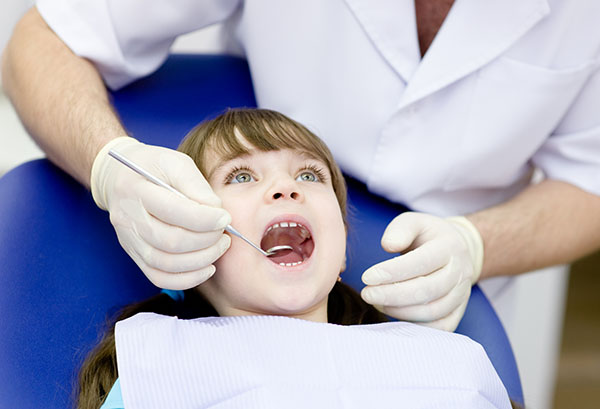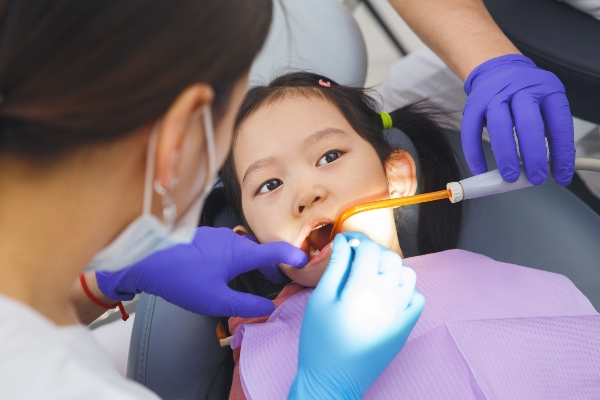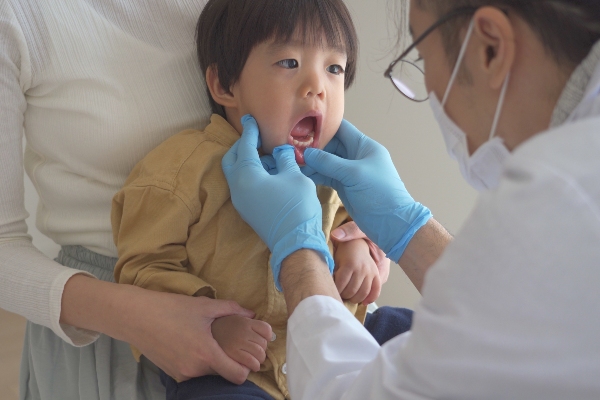Sedation Dentistry for Kids

You might be considering sedation dentistry for kids if your young one if uncomfortable with the idea of being in a dental chair while someone prods their mouth. Dental anxiety is a serious issue that affects people of all ages, and it can get worse as a person ages if it is not overcome.
When is sedation dentistry for kids used?
There are a variety of situations when sedation dentistry for kids is recommended. For example, if the child has a hard time staying still while being worked on, dental sedation can be used to make treatments less stressful for the child.
Sedation dentistry is also recommended for children with special needs. It curbs spontaneous motions and makes the child more cooperative.
Common types of sedatives used by pediatric dentists
Most dentists will provide parents with several options when it comes to sedatives. Each type of sedative has its pros and cons and it often comes down to the how uncomfortable the child it, how long the procedure will take and the child's medical history.
Certain types of sedatives allow the kid to communicate, cooperate and follow instructions. These include:
1. Nitrous oxide
Most people know this compound as laughing gas. It is used by dentists to calm patients who are uncomfortable with dental treatments. Nitrous oxide is a gas that is delivered to the patient through a mask that is placed over the kid's nose.
The gas is combined with oxygen to ensure the child can breathe comfortably during the procedure.
Nitrous oxide is a fast-acting gas and it only takes a few minutes before the patient starts to experience its effects. It makes the patient relaxed, happy and euphoric. Once the procedure is over, the dentist will pump pure oxygen through the mask to ensure the nitrous oxide is completely eliminated from the kid's body.
Nitrous oxide can make some people feel nauseous so it is best to avoid eating anything major before taking the child in for the appointment.
2. Oral sedation
Oral sedation can be used to calm and relax children who feel anxious during dental treatments or have a hard time controlling their muscles. An oral sedative can come in various forms like pills, liquids and tablets.
When taken, it makes the child feel drowsy and relaxed.
Parents should prepare their child for oral sedatives by limiting fluid and food consumption before the appointment, dressing the child in loose clothing and making plans to monitor the child after the treatment.
As is the case with nitrous oxide, oral sedatives might make the child feel nauseous.
3. General anesthetics
This is often the last resort since it puts the child in a state of deep sleep. It is rarely used except for cases where:
- The treatment cannot be performed safely without general anesthesia
- The procedure is very lengthy
- The kid has a condition that limits their ability to follow instructions and cooperate
Get started today!
Dealing with a child who is terrified about getting dental treatments? Talk to a pediatric dentist about sedatives today. They will be happy to educate anyone on the safety and efficacy of sedation dentistry for kids.
Request an appointment here: https://www.hvkidsmiles.com or call Hudson Valley Pediatric Dentistry at (845) 363-4177 to schedule an appointment in our Middletown office.
Check out what others are saying about our services on Yelp: Read our Yelp reviews.
Recent Posts
Getting ready for a pediatric root canal is crucial if your child is to have a pleasant treatment experience. A damaged pulp causes serious pain. Even if extraction is an option, keeping the baby tooth intact is always a priority. Knowing what this procedure has in store can prepare your child well for it. Here…
Your child may need a pediatric root canal for an infected baby tooth. Research shows that many parents think that this is not necessary since the baby tooth will fall out anyway. But baby teeth play a vital role in your child’s dental development and health. Knowing the signs your child may go through a…
Your child’s pediatric root canal will be a delicate and painless procedure. The aim is to preserve the dental structure and prevent extraction. Preparing for this treatment is crucial. Here are five FAQs to consider during your child’s pediatric root canal consultation day.The dentist will numb the injection site with a gel or cream first.…
A pediatric root canal is one of the most common procedures that a dentist may have to perform on a child. It often has the stigma that it is uncomfortable or highly involved, but in reality, a pediatric root canal can be simple and pain-free.If your child needs a root canal, they may feel nervous…


